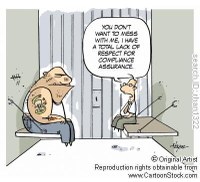Daily GRRR! - February 12, 2015 - Not so luved up: Thursday Morning Edition
Welcome, I am your host Trish Holmes and you are listening to The Daily GRRR! February 12 edition on 100.3fm, CKMS in Waterloo, Ontario. Soundfm.ca on the web.
Opening song: Robbie Robertson with Cherokee Morning Song.
The Daily GRRR! HEADLINES for February 12, 2015
1. Physician assisted suicide
The Supreme Court’s finding on Physician Assisted Suicide last week wherein they cleared the way for doctors to help competent and grievously ill adults end their lives is a great result and I think many of the more conservative opponents of the judgement will be calmed when they see their alarmist and sensationalised ideas are put to rest through robust and stable processes and governance of the procedure. More interesting is that many of these conservative opponents are likely to be staunch conservatives and given that this is an election year and his record at ignoring Court decisions, Stephen Harper may find himself in the situation where he does not want to alienate his party roots but also wants to reach out to the moderates and social conservatives within his party. It’s these moderates whom the Liberals will e targeting in the election. Now Harper’s government has a year to respond to the Court’s decision and draw up legislation, although chances are he’ll leave it until after the election, rather than risking votes on either side. His track record in responding to supreme court decisions recently, a little thing called the democratic process, hasn’t been very good of late with the government virtually ignoring Court judgments when they’ve retabled both the sex workers bill and the comprehensive land claims policy.
Last autumn Bill C-36 (The sex workers act) replaced legislation, overturned in December 2013 by the Supreme Court, which criminalized acts associated with selling sexual services. Bill C-36 criminalizes the purchase (but not the sale) of sexual services, and restricts the advertisement of sexual services and communication in public for the purpose of prostitution. Two instances in which the new bill has been defied are the City of Vancouver, which has indicated its intent to prioritize municipal sex-work guidelines adopted in 2013, and Toronto's NOW magazine, which has refused to comply with the advertising ban. If the government counters either of these instances, this could lead to the first test of the statute's constitutionality. And I don’t think the government wants to test it yet.
And then there is the Comprehensive Land Claims policy, the federal government’s response to the Supreme Court decision regarding the Tsilhqot’in Nation wherein the Court ruled that an Indigenous nation held the underlying Aboriginal title to its territorial lands. Although the ruling opened up new possibilities of co-management of lands and resources by First Nations and the Crown, and affirmed the right of First Nations to benefit from economic activity and refuse development on their title land, the policy does not support nor carry through on these judicial findings. The policy, which is neither a bill nor law, although we are still waiting for the final policy due sooner than later in 2015, but they are said to be only guidelines by which the federal government will engage with in treaty negotiations.
The problem is that within these guidelines instead of encouraging co-management, the government is demanding that First Nations apportion 95% of their traditional territory back to the government. Their return is some money and small parcels of land, but insidiously, as private property, instead of in the collective way that indigenous peoples have long held and stewarded it.
So what will the Harper do with the Court’s Supreme Court’s physician-assisted death decision? I think he’ll ignore it until after the election. Power is more important than principle right now.
2. Former PM and ideas of indigenous thought
Speaking of not understanding indigenous peoples and their worldview, ideology or just system of thought if you prefer. Paul Martin had an op-ed in Monday’s Globe and Mail entitled ‘Indigenous thought belongs in the classroom’ wherein Martin draws attention to the recent education bill – C33. In Martin’s words, ‘the bill not only failed to provide adequate funding, but was also oblivious to the importance of community involvement in a child’s schooling. The bill would have legislated that Ottawa, which has no department of education, should nonetheless assert control over on-reserve learning, despite the fact that across the country there are outstanding First Nations educators and countless examples of structures that work. Even more baffling was the government’s knee-jerk reaction when asked before Christmas by the First Nations leadership for a meeting to resolve these issues. The minister refused, stating that it was the “government’s plan or no plan.”’
Martin’s in favour of the indigenous thought and self-education. But this is what he thinks indigenous thought is
Can indigenous thought hold its own? Of course it can. Modern science and mathematics are an essential component of indigenous learning. He goes on to take about holistic practices and nature.
I think he’s trying to get across that many First nations are educated in western universities and that’s a great thing but his understanding of the First Nations thought is crude and uninspiring. Here there is no mention of collectivism, ideas of property and of social relations but an objection of sorts wheeling out ideas of holistic approaches and love of the nature. Piss off, if you are going to talk about indigenous thought take it seriously and try to put aside your discourse constructions. But at least he’s speaking out.
3. Car Hacking
This story comes from the ‘What if’ category of stories based on fear. In the guardian over the week came the story that many cars contain electronic control units that can be easily hacked, according to a US Senate report by Senator Edward Markey. Most cars now contain more than 50 separate electronic control units collecting vehicle data and improving performance; nearly all have wireless entry points that could act as a gateway for hackers. Almost all the cars on the market today are therefore vulnerable to “hacking or privacy intrusions”, Markey said. The senator’s report follows an investigation by CBS’s 60 Minutes that showed hackers taking control of a car via a laptop. Technologists at the Defense Advanced Research Projects Agency, a government tech lab, were able to remotely control the brakes, acceleration and windscreen wipers of a production US vehicle.
The Massachusetts senator’s investigation of 50 top car manufacturers including BMW, Chrysler, General Motors and Ford found their treatment and protection of such potentially sensitive technology and information to be “alarmingly inconsistent and incomplete”. According to Markey, nearly 100% of cars on the market include wireless technologies that could pose vulnerabilities to hacking or privacy intrusions, while most automobile manufacturers are unaware of or unable to report on past hacking incidents. The senator also said security measures to prevent remote access to vehicle electronics are inconsistent and haphazard across all automobile manufacturers, and manufacturers are collecting large amounts of data on driving history and vehicle performance and distributing it to third parties, giving little information on how the data is used, how it is stored or for how long. Markey also said customers are often not explicitly made aware of data collection and, when they are, they often cannot opt out without disabling valuable features, such as navigation.
4. SIRC Committee? *facepalm*
There are a lot of problems emerging regarding the Security Intelligence Review Committee.
On the weekend, Bob Rae, a former member of SIRC, told the CBC that SIRC is lacking in resources and jurisdiction.
The CBC reports that at least three of the appointees, Chuck Strahl (who himself has voiced concerns about the committees jurisdiction), Denis Losier and Yves Fortier all have ties with the Harper government and the oil industry.
I’m not sure Harper even understands the importance of this committee. Sure he’s loaded it with his cronies, but listen to how he responds to Tom Mulcair, leader of the federal NDP who questioned the PM about redefining oversight and one redefines the powers of CSIS.
http://on.aol.com/video/stephen-harper-says-security-watchdog-is-robust-... (2 mins)
5. HSBC
The HSBC
In a disgraceful show of secrecy, exclusiveness and illegal banking practices British bank HSBC, a data leak has shown that the bank helped thousands of people, including hundreds of Canadian, hide Swiss accounts from authorities to avoid paying what amounts in total to billions of dollars in taxes.
(7 mins)
http://www.cbc.ca/news/business/hsbc-documents-show-bank-helped-clients-...
Feature: Andre Brink RIP
Last Friday South African writer Andre Brink died of a heart attack. As it happens played a tribute to him on Monday evening.
Closing song: Cole Porter (sung by Billie Holliday) with Let’s Do it (Let’s Fall in Love) .
This was the The Daily GRRR! for February 5, 2015. We are on weekdays from 9-10am on 100.3fm CKMS in Waterloo region, and soundfm.ca on the web. Check out all our past shows and other Grand River Media Collective work on our webpage grandrivermc.ca. The Daily GRRR! is supported by the Community Radio Fund of Canada and CKMS. Stay tuned in for more Grand River Radical radio . Thanks for Listening.


